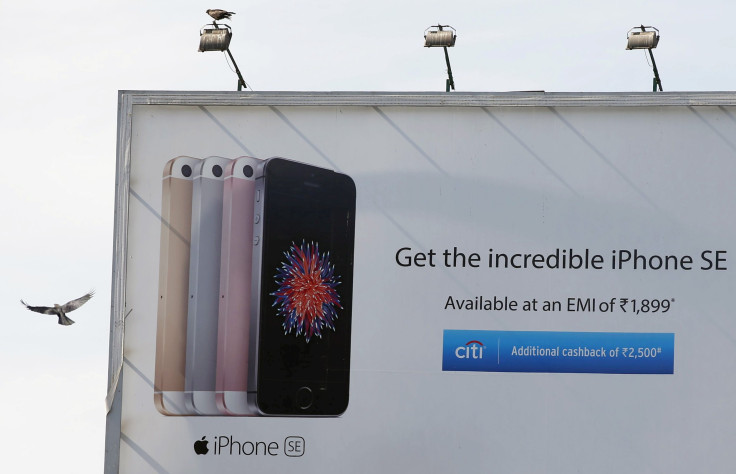Apple Inc. (AAPL) Retail Stores In India: Government Refuses To Waive Local Sourcing Rules Despite Tim Cook Visit

India’s Finance Ministry on Wednesday ratified a decision by the country’s Foreign Investment Promotion Board (FIPB) that requires Apple to comply with domestic sourcing rules in order to open its own stores. According to unnamed sources cited by Bloomberg, India’s Finance Minister Arun Jaitley lent his support to Tuesday’s FIPB decision, wherein the iPhone maker would have to procure 30 percent of its product components locally.
Currently, Apple sells its flagship iPhones and iPads through franchisees and retail units of several Indian distributors. The California-based company, which manufactures most of its products in China, has long sought an exemption from the government’s local sourcing rules — a hallmark of the Narendra Modi-led administration’s “Make in India” policy.
Under the current official provisions, such a waiver can be granted if the FIPB deems the company to be a manufacturer of “cutting edge” or “state-of-the-art” technology.
“Apple’s case for waiver of sourcing norms came to the finance ministry six days back, but was not justifiable. They (Apple) could not prove through enough merit that the technology they want to sell is cutting-edge technology and state of the art. But they can open stores if they meet the norms,” an unnamed finance ministry source told Indian newspaper Hindustan Times.
The decision, which comes just days after Apple CEO Tim Cook made his maiden trip to the country, is likely to be a significant blow to the company's expansion plans in India, where it currently commands a mere 2 percent of the market share. Last week, after reports of Apple being granted a waiver surfaced on several local media outlets, Cook clarified it was far from “a done deal.”
“We have applied for the right to do that and we're working closely with the government and I'm really optimistic about it. But we have not been given the green light yet,” Cook said during an interview with the Indian news channel NDTV.
When contacted by International Business Times, an Apple spokesman declined to comment on the development.
© Copyright IBTimes 2024. All rights reserved.






















